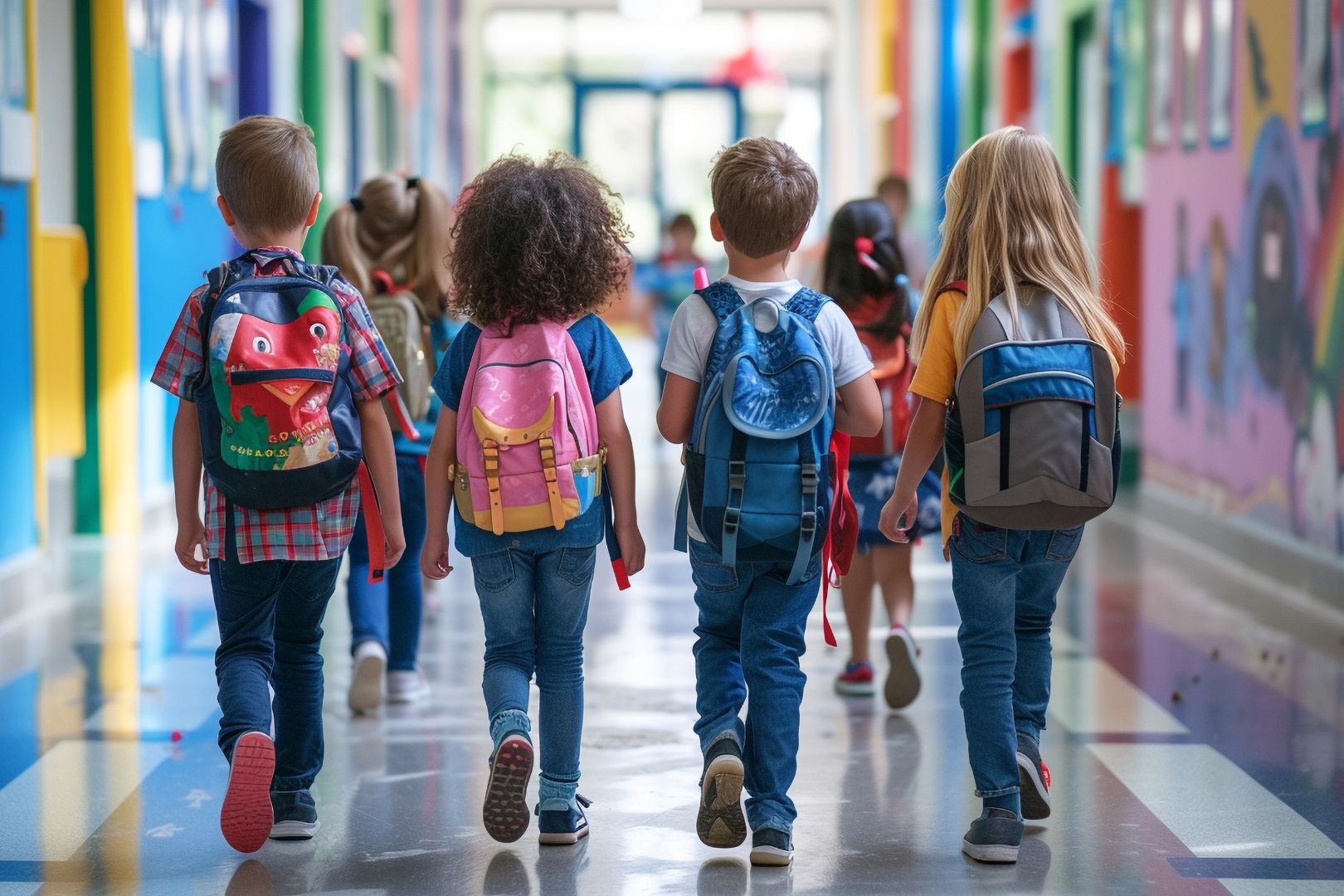 UTA expert shares advice as families navigate new statewide classroom policy changes. (Adobe Images)
UTA expert shares advice as families navigate new statewide classroom policy changes. (Adobe Images)
The new school year is right around the corner. In addition to the usual back-to-school challenges, students, parents and teachers in Texas public K-12 schools must also navigate new legislative changes taking effect for 2025-26—including a classroom cell phone ban, broader disciplinary authority and increased religious presence in schools.
Bonnie Laster, associate professor of instruction in the Department of Psychology at The University of Texas at Arlington, draws on her background in developmental and educational psychology to share advice for students and parents looking to start the school year on a positive note.
What can parents do to help their children feel emotionally ready for the new school year—both academically and socially? Any routines or habits that support a positive start?
Dr. Laster: A few small steps can help students feel more comfortable, confident and prepared for a positive start to the school year. As summer winds down, one of the best things families can do to prepare both students and parents alike, is to ease back into a consistent routine. Gradually shifting bedtimes and wake-up times to match the school schedule can help students feel more prepared, and a little less shocked, when that first early morning arrives. Getting back into a school-year rhythm doesn't just help kids adjust physically; it also helps set clear expectations. Students of all ages benefit from knowing what is expected of them. Even if an older student doesn't have a strict bedtime, things like winding down earlier, turning off electronics or packing up for the next day can go a long way in creating a smoother transition.
If a student is feeling anxious about the upcoming year, attending a "meet the teacher" night or open house can be imperative. Arriving early to these events can give students a chance to explore the space before the crowds show. This simple step can make everything feel a little more manageable, particularly for students who get easily overwhelmed or may feel anxious about socializing with others. Younger students often love having a role or responsibility. A chance to help out by passing out papers, school supplies or just being a classroom helper, can give anxious students a sense of purpose and ease apprehension. These small opportunities for engagement can make a big difference in building comfort and confidence before the first day.

A new statewide ban will prohibit student cellphone use during class time. This means parents can no longer contact their children during the school day as easily as they have in the past, and students won't be able to use their phones to reach out to parents, text friends, or even look things up for class. What emotional or behavioral challenges could this create for families, and how can parents and students prepare for this shift in communication and dependence on technology?
Dr. Laster: Today's students are digital natives. Many have grown up with technology as a consistent part of daily life. For some, phones have become even more than just a tool; they're a source of social connection, emotional security and even identity. And for many parents, instant access to their children throughout the day has provided reassurance and peace of mind. For those reasons, going without personal devices during the school day may be a significant adjustment for many families. Phones and other devices often provide a sense of comfort and connection. There's security in knowing a friend or family member is just a text away. Without that constant access, some students may feel unsettled or vulnerable, or may even experience a sense of loss. Students or parents may even initially exhibit some characteristics of separation anxiety; a strong sense of fear or unease when being apart from a loved one. These reactions are understandable, especially during the early weeks of the school year.
One of the most helpful ways parents can support their students through this change is by keeping communication open and empathetic. While adults may recall a time when school days were entirely tech-free, it's important to recognize that this is a new and unfamiliar experience for many students. This new policy may anger students or reduce their sense of autonomy. Rather than minimizing concerns, take time to listen and validate your child's feelings. Students also often use their phones to manage emotions, like texting a friend when they're upset, distracting themselves during down moments or listening to music to self-regulate. Without that access, some may struggle to find alternate coping strategies, especially if they haven't developed them yet. Parents can help by working with their child to develop alternate strategies for self-regulation. Techniques such as deep breathing, journaling, drawing or talking with a teacher or counselor can help students express their emotions in a healthy outlet.
House Bill 6 removes past protections that shielded both young children and students experiencing homelessness from most suspensions. The legislation provides broader definitions of "disruptive" behavior. What do these changes mean for families, and how can parents support children who may now be subject to disciplinary action?
Dr. Laster: Young students, such as those in early elementary, are still developing the emotional regulation and social skills required to function in a structured school environment. Behaviors like impulsivity, talking out of turn or emotional outbursts are often developmentally typical at this age. However, these behaviors could be labeled as "disruptive," potentially leading to suspension. Parents can help by encouraging and modeling appropriate behavior at home. They can also help their child build skills to manage frustration, follow directions and express needs appropriately. Things like practicing routines, role-playing classroom scenarios and modeling calm problem-solving can help give students the tools they need in the classroom.
Similarly, students facing housing instability or other adverse circumstances may struggle to meet behavioral expectations due to stress, trauma or inconsistent support. Without the previous protections, these students are now more susceptible to exclusionary discipline; punishments that remove them from the learning environment and can exacerbate a sense of disconnection and instability. Parents or caregivers can help by fostering communication with their child's school. Early and consistent communication can help a child's teachers and counselors understand their unique needs, strengths and any circumstances at home that may be affecting behavior. Building a collaborative relationship with the school can lead to more compassionate, proactive responses.
New laws this year introduce more religion into public classrooms, including mandatory displays of the Ten Commandments and optional daily prayer or scripture reading for consenting students and staff. What advice do you have for parents who want to help their children process these changes?
Dr. Laster: The new laws can have a range of emotional and social effects on students, depending on their personal beliefs, developmental stage and school environment. For students who share the promoted religious beliefs, these changes may feel affirming or familiar, leading to feelings of connection with the school environment. However, students from different faith backgrounds or those who are non-religious, may feel excluded, singled out or even pressured to conform, particularly if their peers or teachers visibly participate in optional activities. This can create discomfort or tension, especially in younger students who are still forming their identities and are sensitive to peer dynamics. Students are highly attuned to social cues, and anything that sets them apart from their peers, such as opting out of a group prayer or being the only one who doesn't participate, can affect their self-esteem and increase feelings of social anxiety or isolation. Younger children may not have the emotional maturity or vocabulary to explain why they're uncomfortable or why they don't want to participate in a prayer or religious reading. This can lead to confusion, withdrawal or behavioral changes that are easily misunderstood if adults aren't attuned. During adolescence, peer acceptance becomes central to self-esteem. When teens feel "different" or marginalized because of their beliefs (or lack thereof), it can impact their sense of safety, identity and emotional well-being. Parents can support their students by fostering clear and open communication. Students of all ages are more likely to speak up when they feel safe, heard and not judged. Make it clear to your child that they can come to you with questions, even if those questions feel uncomfortable or complicated.
- Great things to say may include:
- "There are going to be some changes at school this year involving religion. Have you heard anything about that?"
- "How do you feel about the idea of prayer or scripture reading during school time?"
- "It's OK to feel unsure or even to change your mind about how you feel. I'm always here to talk it through with you."
Parents can also help their student develop simple, respectful ways to express their preferences at school, such as "Thank you, but I'll sit quietly during this part" or "I'm not comfortable participating, but I'll be respectful of others who do." Knowing what to say and how to say it can reduce anxiety and build confidence.
Even with all the changes that students and parents might have to navigate this school year, what recommendations do you have for parents to fuel excitement in their students without overwhelming them?
Dr. Laster: To help build excitement for the new school year, encourage your student to select something special for the first day, such as picking out a new special folder or colorful pens, or a new lunch bag that reflects their unique personality. Small touches like these can help students feel a sense of ownership as they head into a new chapter. If purchasing something new isn't an option, there are still plenty of meaningful ways to create that same sense of anticipation. Consider helping your student choose their outfit for the first day, maybe laying it out the night before so they feel prepared and confident. You might even plan a special breakfast together or write a short note to tuck in their backpack or lunchbox. Simple, intentional gestures go a long way in setting a positive tone, and can make all the difference in how a student approaches the year ahead.
With most students phone-free during the school day this year, it's natural for parents to be eager for updates about those first few days and weeks. We're curious: how did it go? Who's in their classes? Who did they sit with at lunch? But just like adults often need a moment to unwind after work, students benefit from a little space before diving into a full recap. Instead of jumping right in with questions, try giving your child some time to decompress. Many children and adolescents enjoy down time through phone use, gaming, reading or playing with friends. Casual check-ins while making dinner or getting ready for the next day can open the door to thoughtful responses and better engagement with students, particularly with teens.
About The University of Texas at Arlington (UTA)
Celebrating its 130th anniversary in 2025, The University of Texas at Arlington is a growing public research university in the heart of the thriving Dallas-Fort Worth metroplex. With a student body of over 41,000, UTA is the second-largest institution in the University of Texas System, offering more than 180 undergraduate and graduate degree programs. Recognized as a Carnegie R-1 university, UTA stands among the nation's top 5% of institutions for research activity. UTA and its 280,000 alumni generate an annual economic impact of $28.8 billion for the state. The University has received the Innovation and Economic Prosperity designation from the Association of Public and Land Grant Universities and has earned recognition for its focus on student access and success, considered key drivers to economic growth and social progress for North Texas and beyond.






